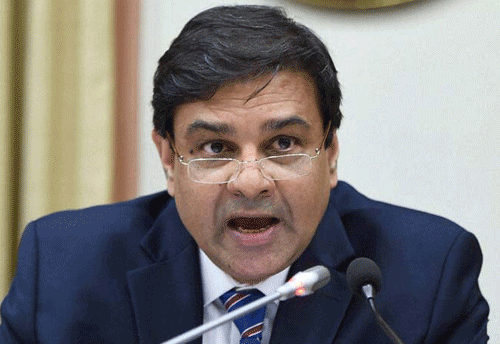Guarantees increase government’s contingent liabilities and add to risk premia for its own borrowing: Urjit Patel
Updated: Jan 12, 2017 07:47:58am

Guarantees increase government’s contingent liabilities and add to risk premia for its own borrowing: Urjit Patel
Gandhinagar, Jan 12 (KNN) Reserve Bank of India (RBI) Governor Urjit Patel, while addressing at the Vibrant Gujarat Summit, said Guarantees increase government’s contingent liabilities, and add to risk premia for its own borrowing.
Patel was speaking at Gandhinagar, Gujarat, at an event to commemorate GIFT, India’s first International Financial Services Centre (IFSC).
On December 31, 2016, Prime Minister Narendra Modi raised the ceiling for credit guarantees on loans to small businesses from Rs 1 crore to Rs 2 crore and offered interest rate relief of 4 per cent on housing loans up to Rs 9 lakh and 3 per cent on loans up to Rs 12 lakh.
He said some government guarantees and limited subventions can help, steep interest rate subventions and large credit guarantees also impede optimal allocation of financial resources and increases moral hazard.
Patel said Credit guarantees “have limited utility in solving important sector issues. For small-scale enterprises, perhaps non-pecuniary and transaction costs related to clearances, inspections and the taxation bureaucracy are more important,” he said.
Such guarantees should be used judiciously, Patel argued, otherwise a government guarantee ended up costing the government through higher risk premiums while borrowing money from the market.
High borrowing by the Centre and the states was limiting India’s ability to improve its credit rating and “pre-empting resources from future generations by governments cannot be a short cut to long-lasting higher growth”, Patel said.
He cited International Monetary Fund data that India’s general deficit, combining state and central borrowing, was the highest among G20 nations.
“We have to take cognisance of these comparisons. Specifically, this will help us to better manage risks for ourselves, and thereby mitigate financial volatility,” he added.
Further, on GIFT, India’s first International Financial Services Centre (IFSC), he said, “The other dimension that is critical to GIFT’s comparative competitiveness is, as I mentioned earlier, the micro ecosystem within the IFSC.”
“Here, there is the need for a modern complementary legal infrastructure. We need to do a lot in this regard. We have to strengthen the legal framework as applicable to entities operating in the City and their counterparties in the domestic sector. It is possible that many business entities that can potentially relocate to GIFT City are waiting for this framework to be put in place,” Patel said.
An IFSC should have a legal structure that is sufficiently supportive of the swift resolution of conflicts and disputes arising from the settlement/enforcement of complex international financial contracts.
The contract should be of international standard and enforceable in the court of law and preferably similar to ISDA documentation.
The existing laws governing financial contracts in India should be reviewed and gaps addressed.
He said a unified financial regulatory framework providing for a single regulator for GIFT City could contribute to better regulation and supervision of the financial entities in the City.
“While individual regulators can supervise the entities initially when the size of the business is small, a unified regulator would be necessary to pay undivided attention to the IFSC. Work on the design of such a framework should begin soon so as to be able to implement this in time,” said the RBI Governor. (KNN Bureau)












